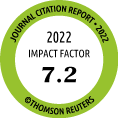| Return to Contents in this Issue | |||||||
|
Original Article |
|||||||
|
Efficacy and Quality of Life With Once-Daily Sublingual Immunotherapy With Grasses Plus Olive Pollen Extract Without Updosing |
|||||||
|
Á Moreno-Ancillo,1 C Moreno,2 P Ojeda,3 C Domínguez,1 MJ Barasona,2 A García-Cubillana,3 S Martín,4 |
|||||||
|
1 Hospital Virgen del Puerto,
Plasencia, Spain |
|||||||
|
J Investig Allergol Clin Immunol 2007; Vol. 17 (6): 399-405 |
|||||||
|
|||||||
|
|
|||||||



